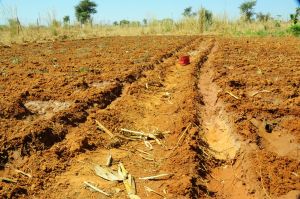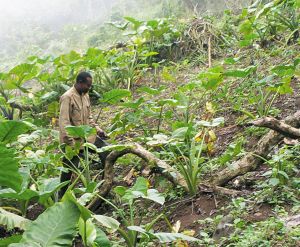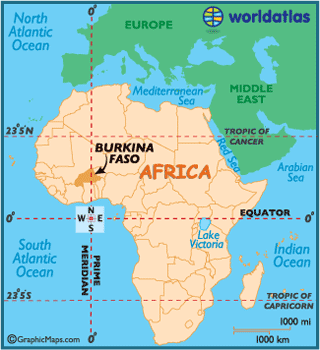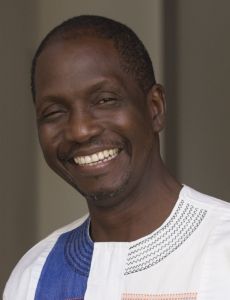
In America, most of us have the fortune of food and resources being available without a question. In Burkina Faso, a small country in West Africa, people struggle to even obtain these resources as a result of the changing climate.
For Jacques Kabore, he has experienced these issues first hand. A Burkina native, Kabore now finds himself deeply involved with Catholic Relief Services in order to help the people of his country.
According to the World Food Program, Burkina Faso is one of four of the poorest countries in the world. The effects of climate change have caused drought, an unpredictable rain season, poor soil, locust invasions and the lack of basic inputs for farming.
According to ‘The Face of Africa: Looking Beyond the Shadows,’” 46 percent of people living in Burkina Faso live on less than $1 a day. Less than two percent of Burkinabés, or people from Burkina Faso, are able to meet food needs for six months.

As a result of these issues, Catholic Relief Services has been assisting in helping out the people of Burkina Faso since as early as 1960.
Kabore himself has studied law, microfinance, accounting, micro-enterprise and project management, though he has become inspired to care for the people for the world who need help the most.
“I believe in the impact of solidarity,” Kabore said. “Everybody has the key of solidarity in their hand. We must use it to open the hearts of those in need.”
Kabore’s skill sets have certainly aided in his efforts to help others. In his time working with CRS, he has led Burkina Faso’s livelihood department, worked in microfinance and has aided in emergency response.
Burkina Faso is a landlocked country, without any seaports for commerce. Eighty percent of the working population relies on agriculture and livestock rearing to make their living.

CRS works with the government, local partners and other members of civil society to address major development challenges through improving agriculture, livelihoods, nutrition and education.
Kabore and the workers at CRS also look for hope and optimism from developed countries, such as the United States, for motivated people willing to help out in whatever way they can. Through CRS Rice Bowl, people are encouraged to keep up with their Lenten duties by receiving updates on possible sacrifices and daily reflections one can make to benefit less-developed countries, such as Burkina Faso.
“CRS is the car of food that God is sending to those in need,” Kabore said.
Kabore also encourages that people use the CRS Rice Bowl app to educate themselves on the dangers of climate change and the issues it poses on less-developed countries, such Burkina Faso, as well as our own environmental safety.
Senior communication major Brittany Smith reacted positively to Kabore’s teachings when he visited her ECG 300 class titled “Working for Global Justice with CRS” and feels even more inspired than ever to help out the people who desperately need help.

“I absolutely think it’s possible for us to make a difference in the world,” Smith said. “One tiny action, like not getting coffee one day and putting that money towards donating, can be vital to lives around the world.”
Smith also acknowledged the importance of reducing our carbon footprint. A carbon footprint is defined as the total set of greenhouse gas emissions caused directly and indirectly by an individual.
Smith has become a student ambassador for Catholic Relief Services in the past year and has since developed a desire to help the world around her.
Ashley Miller, junior marketing major at Cabrini, has also set out to decrease her individual carbon footprint. Also having witnessed Kabore’s lecture in her ECG 300 class, Miller has, too, developed an urge to take small steps in decreasing climate change.
“[Kabore’s] story inspired me to do little things that help add up,” Miller said. “For example, we can always find different ways to reduce our carbon footprint.”
Miller turned to the idea of incorporating solar panels in her own home as an attempt to reduce the environmental impact of her house’s energy use.
“I have a deep conviction that no one should rest while there is still hunger in the world,” Kabore said.


